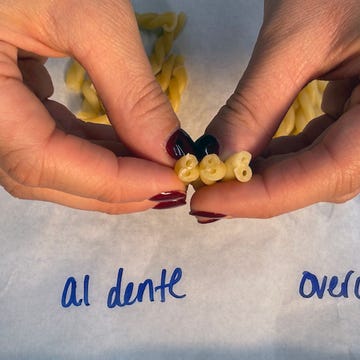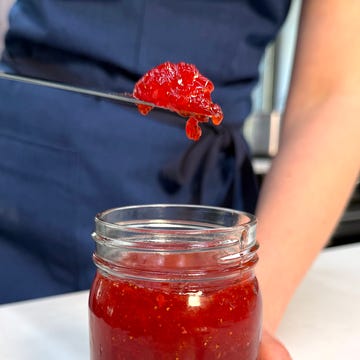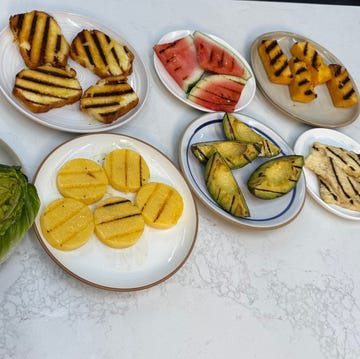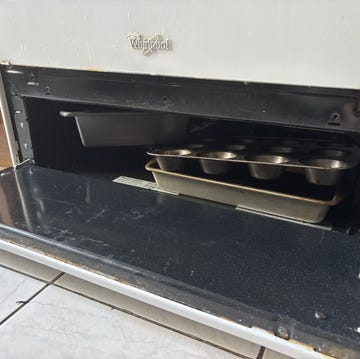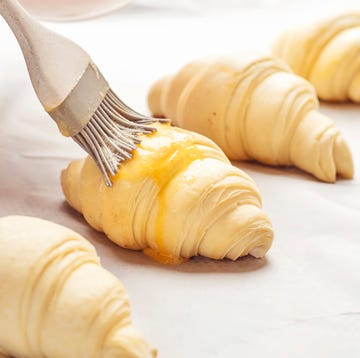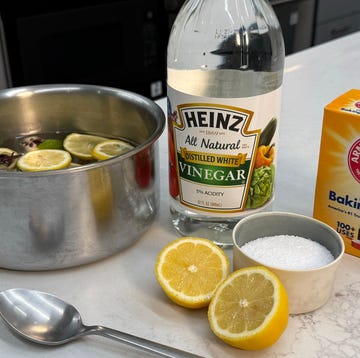Whether you're searing a steak, simmering a soup, or baking a cake, almost every recipe has one ingredient in common: salt. Salt is a seasoning that sits by the stove of nearly every home in the world. It's one of civilization's oldest preservatives, allowing foods like pickles and prosciutto to grace our grocery stores. You can find salt in almost every food you eat. And yet, many home cooks don't know how to wield it.
I've been taught that salt is like a magnifying glass for flavor because it enhances the taste of other ingredients. But not all salts are made equally, which means the impact it'll have on your cooking and baking will vary. Professional chefs keep several important considerations in mind when they're using salt that home cooks can use in their own kitchens.
We consulted experts from every corner of the food industry to share what they wish home cooks knew about using salt. These tips, while seemingly simple, make a massive impact on how your food tastes.
Choose Your Salt Wisely
You may look at the salt aisle and only reach for your tried and true brand. But different types of salt exist for a reason, and they're not always interchangeable. Let's break them down:
Kosher Salt
Contrary to what you might expect, no religious practices are involved in the making of kosher salt. This ingredient earned its name because it has historically been used to make meat kosher. It is also the preferred all-purpose salt for professional chefs.
"Kosher salt is coarser than table salt and irregular in shape, which makes it easy to handle—unlike table salt, which can easily slip out of your fingers," says Chef Abishek Sharma of Madam Ji Ki Shaadi in New York City. It's also ideal because it's less salty than other salt types, which makes it harder to over-season your food.
Wait...how can salt be more or less salty? It all comes down to the granules. "The perceived saltiness of any particular kind of salt is a direct result of the shape and size of the salt crystals, which changes the salt's density and therefore the perceived saltiness," says Food Editor Brooke Caison.
Kosher salt's wide, irregular crystals take up a lot more space than fine, dense granules—so a teaspoon of kosher salt will always be less salty than a teaspoon of table salt.
Table Salt
These are the classic granules you'll find in a salt shaker, and they're often supplemented with iodine for extra nutrients. Remember, the shape of your salt is everything—and table salt's fine, compact grains bring a "sharp, pronounced saltiness," says Jessica Randhawa, chef, writer, and recipe developer behind the blog The Forked Spoon.
Professional chefs don't typically reach for table salt for general seasoning purposes since it's less tactile and tends to fall off your food rather than stick to it. Chef Cedric Vongerichten of CV Restaurant Group says, rather, it's "best for baking and precise measurements," like when you're weighing your ingredients.
If you're following a recipe that calls for kosher salt but you only have table salt on hand, chefs recommend reducing the amount you use by at least half.
Sea Salt
While kosher and table salts are derived from underground deposits or salt brines, sea salt is made from (you guessed it) evaporated sea water. Minimal processing means the salt retains the natural minerals present in the water. Those minerals each contribute their own unique flavors, which is why professional chefs often use sea salt to finish a dish.
"I love flaky Maldon salt on everything—it adds a nice salty crunch to dishes," says Emilie Symons, chef-instructor of Plant-Based Culinary Arts at the Institute of Culinary Education’s Los Angeles campus. You can also experiment with flavored sea salts, like those that are smoked, or infused with herbs and spices.
"There is a wide range of sea salt and it can vary in color as well as texture from fine to coarse to large flakes," says Sharma. The lack of consistency in size and shape makes for a fun eating experience, but it is less than ideal for scenarios where measurements matter.
Don’t Bother With A Salt Grinder
There's a chance that the salt in your pantry includes an attached mill. We prefer, and often insist, on using freshly ground black pepper. But with salt? It's entirely unnecessary (and sometimes a major arm workout).
Spices like peppercorns are full of volatile oils and compounds that evaporate over time, especially when they're already ground. Salt, on the other hand, is a mineral. Its flavor will not change—so don't waste your time grinding it. Beyond adding an unnecessary chore to your cooking routine, it also makes it much harder to measure the amount of salt you're using. Instead, opt for a salt crock where you can easily add a pinch or measure the exact amount you need.
Don’t Save Salt Until The End
It's understandably important to season your food before you serve it to make sure it tastes exactly how you want it. But you shouldn't limit your salt use to the very end. "Seasoning throughout the cooking process builds layers of flavor," says Jacob Mendros, executive chef of Prima Italian Steakhouse in Boston.
"A small amount added at the start helps flavors build during simmering or sautéing, and tasting frequently allows me to adjust as I go—so I can make sure the flavors develop properly," Randhawa adds.
It also doesn't hurt to season food before you start cooking. Both Randhawa and Sharma recommend salting meat ahead of time so the salt can fully penetrate and season it from the inside out. It's also essential for boiling starches like pasta, rice, and potatoes that could benefit from added seasoning.
Reduce Your Salt If You’re Reducing A Sauce
As you add salt to a dish, it's worth noting what the end result of your recipe will be. You may be tempted to be heavy handed when seasoning large amounts of liquid. But experts say you should proceed with caution if that liquid will reduce over time.
Water evaporates, but salt doesn't—so "the concentration of salt will increase," says Sharma. "If you let a sauce reduce too much, you may risk it becoming too salty." To avoid this dilemma, season in small amounts throughout the cooking process, then wait until the end to add more and get the seasoning just right.





